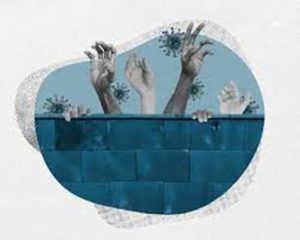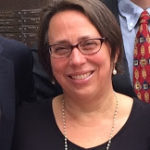
In January of this year, there was a distinct weight. Perhaps you felt it, too? I texted a friend, “I think I am hitting a pandemic wall.” I felt strangely alone or at least, lonely. A profound sense of isolation began to set in. As shadows of past memories resurfaced, the inner dialogue of self-doubt began. Yet, my husband and young-adult age children make my world go round. Reaching out to friends brought me back into the present. Going for walks with others, all provided much needed perspective. Indeed, we are all in this together.
As a psychotherapist and pastoral counselor/minister, I meet with individuals weekly. However, recently, many are asking to be seen twice a week. The mental health clinic where I work has recently stopped accepting patients due to being at capacity. My current caseload consists of medical personnel, young people trying to make sense of this complex world. It includes those who are married, single, or living with roommates that they don’t really know that well. There are scientists who are deeply worried about climate change, a nun who is now caring for both her elderly parents, one who is in hospice. There are the understandably stressed parents with young children, who have lost supportive structures, requiring every last fume of resilience. Recently, the shooting in Boulder has personally effected two individuals I work with bringing the violence and horror closer and closer to home. For some, the constant waves of alarm and distress may create a domino effect or stress pile up resulting in diminished mental health.
Another aspect of this Pandemic time period are the layers of psychological trauma experienced by many. We all bring with us a past history. These former experiences impact us in the present time, particularly when triggered by certain environmental factors. One woman found that going to the grocery store during the first months of the Pandemic left her feeling overwhelmingly anxious. It was the empty shelves that viscerally reminded her of the hunger and food insecurity she experienced in her childhood.
I see many individuals who struggle with complex traumatization or C-PTSD (survivors of repeated abuse and violation). For several years, I conducted sexual abuse evaluations with children who were suspected of being abused, and now I work with adults managing their childhood histories of maltreatment. Judith Herman introduced the concept of complex trauma in her 1992 book, Trauma and Recovery. She noted that while many before her had identified a series of symptoms evidenced by individuals who had been repeatedly abused as children, the diagnostic language had not yet been formulated. She referred to those individuals who had been chronically abused and evidenced symptoms such as affect dysregulation, suicidality, persistent dysphoria, anger, shame, guilt, difficulties in interpersonal relationships, loss of faith in belief systems of meaning, as having complex post-traumatic stress disorder. Herman wrote, “Naming the syndrome of complex post-traumatic stress disorder represents an essential step toward granting those who have endured prolonged exploitation a measure of the recognition they deserve. It is an attempt to find a language that is at once faithful to the traditions of accurate psychological observation and to the moral demands of traumatized people.” (Herman, Trauma and Recovery, p. 122.)
The multiple anxiety raising societal events in the United States including the Presidential election, the ongoing polarization of our country, the resurgence of Covid in the winter months, the Insurrection at the Capitol, and now, mass shootings resulting in more death, build upon one another. All furthering feelings of distrust, betrayal, and fear as our very foundations are shattered.
This topic seems fitting as we head into the more foreboding days of Holy Week. The movement of Jesus’ descent to hell on Holy Saturday, to my mind, is crucial, and life-saving. The power of witness and solidarity even in the darkest of places, unites us in dignity and healing. There is no pain Jesus does not understand. Priest and writer, Martin Smith writes, and I paraphrase, “No human heart or community… however eaten up with corruption and violence, however consumed with loathing or committed to death, there is no inner or outer hell that can hold out ultimately to the life-giving Spirit and the embrace of God” (Smith, , p. 182). As we journey into Holy Week, encountering those Pandemic walls right along with Jesus, it helps me to know that communities of faith have the power to hold and to heal. The Spirit surrounds us in a profound witness that is generative. We are not alone. God’s love for us never ends.

Jennifer Stuart
Jennifer Stuart is an ordained minister in the United Church of Christ. She serves as a community minister at First Church in Cambridge, MA, UCC. Jennifer, a clinical social worker specializing in psychological trauma, is a psychotherapist at the Danielsen Institute at Boston University.